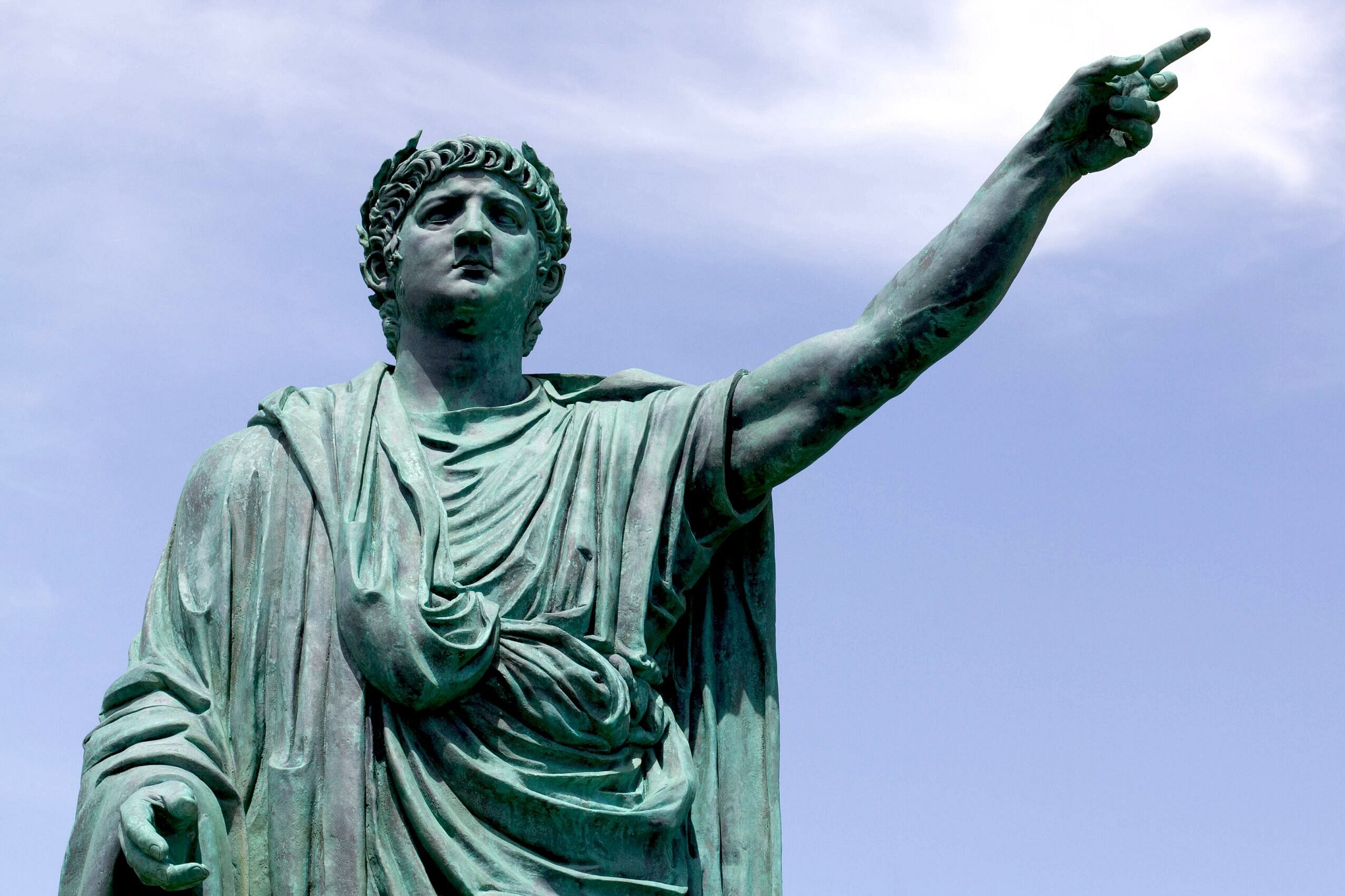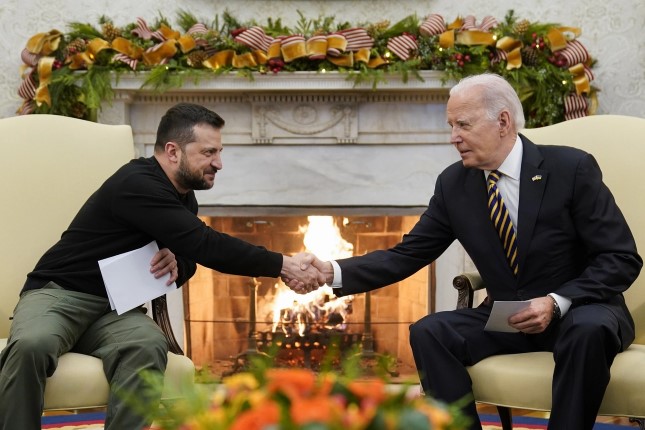The ancient world can teach us much, if we only let it. One of its key lessons is that mass migration is capable of destroying even the mightiest of empires.
At the height of its power, the Roman Empire was so vast and so omnipotent that it was run on the basis of the dictum: “Roma locuta est. Causa finita est!” (Rome has spoken. The cause has finished).
The names of its most powerful figures have been so heralded through the ages, they remain almost as familiar to us today as if they’d only passed from the stage yesterday. Pompey, Caesar, Augustus, Nero, Hadrian, Vespasian, Constantine; these were men whose rule over the ancient world was so dominant that the only real threat they faced came from within Rome itself.
It would have been the very definition of popular insanity to claim that the empire was anything other than eternal and invincible, stretching as it did from the Italian peninsula across Western Europe and down into North Africa and the Middle East, enforced by legions whose very presence in the field of battle induced terror in any army unwise enough to challenge its writ.
Power Shift
Virtual image of Constantinople in Byzantine era with the hippodrome to the left and the Great Palace complex to the right. (Hbomber/Wikimedia Commons/CC BY-SA 4.0)
Yet in the year 476 AD what was then known as the Western Roman Empire came to an abrupt end after a century of successive “barbarian” invasions finally succeeded in bringing Rome to its knees.
The symbols of its power — in the form of the emperor’s imperial vestments, diadem, and purple cloak — were sent to Constantinople, the seat of power of the empire’s eastern half. Thus the curtain closed on Rome’s glorious 1000-year history.
It was proof that no empire, regardless of its economic and military might, lasts forever.
Rome’s demise had been a long time coming: the contradictions of an empire run on the basis of slavery, tribute, and plunder were so great it was inevitable they would become insurmountable over time. Under Rome’s rule millions lived in poverty and squalor, supporting an elite whose wealth and ostentation was both obscene and untenable.
Any economic system that operates on the basis of coercion, domination and extreme exploitation gives rise to a determined and persistent resistance. This in turn leads to more force, more military power needing to be deployed to maintain the status quo.
However this only succeeds in fomenting further resistance and with it destabilization, which in turn acts as a catalyst for the mass movement of people seeking sanctuary from the chaos that ensues.
There were other factors too. The Germanic Goths fled the encroaching Huns crossing the Danube into Roman territory in 376 CE. After an attempt to integrate them failed, the Goths rebelled and defeated the Roman army at the Battle of Adrianople in 378 CE, where the Emperor Valens was killed. That defeat contributed significantly to the fall of Rome.
What came to be known as the Migration Period from 375 to 568 CE is largely what brought down the Western Empire.
It did so in a process whose early stages are evident today with a growing migration and refugee crisis that is starting to chip away at the foundation of Western hegemony.
Both in Europe and the United States the issue of immigration and migration has succeeded in producing a sense of panic within governments and the political classes to the point where political formations, parties, and movements have emerged in direct response to it
Borders & Base Fear of Invasion
June 23, 2020: President Donald Trump, in Yuma, Arizona, walks along the completed 200th mile of the border wall. (White House/Shealah Craighead)
In the U.S., Donald Trump re-entered the White House this year vowing to continue his focus on immigration on the U.S. southern border, citing it as Washington’s most vital issue.
One might think his gross generalization of migrants from south of the border as rapists, criminals, murderers, etc. would have been so unpalatable and objectionable that his chances of winning a second term would have been dashed in the name of common human decency.
But with every speech and interview on the subject, Trump merely streaked further ahead of his politically inept Democratic Party opponent, Kamala Harris. In so doing, he played to the base fears of millions of Americans — white Americans in particular — when it comes to the perception of their country being “invaded” and “flooded” by a rascal multitude.
In Europe, meanwhile, mass migration from Africa and the Middle East has likewise resulted in an increasingly irrational and militant response by the political mainstream.
Brexit in 2016 was a referendum largely fought and won on the mantra of “controlling our own borders.” Nine years later a moral panic has been whipped up over the hundreds of boats bringing migrants, refugees, and asylum seekers across the English Channel.
Their desperation to reach Europe, and the willingness to risk their lives in the process, is no surprise given the abject chaos many have left behind. Syria, Libya, Eritrea, Somalia, Afghanistan, Iraq, Sudan — with each year that passes more countries in Africa and the Middle East fall prey to chaos and destabilization.
The people fleeing these conditions are victims of a global economy that itself is in crisis, exposing the incontrovertible fact that under capitalism the development and huge wealth of the northern hemisphere feeds on the under-development and crippling poverty of the southern hemisphere.
The array of conflicts and seemingly unconnected crises we are living through are inarguably connected to this same underlying factor.
Unsurprisingly, the political classes sitting at the apex of this unsustainable reality are in denial, refusing to countenance for a moment their role as authors and architects of a world that creeps ever closer to the abyss.
It is a congenital disorder they share with their ancient Roman antecedents.
Like them they are increasingly attached to the deployment of force and hard power to deal with the symptoms of gross inequality and inequity that underpins a global economic and political system which is crisis-ridden and unsustainable.
In the process they merely continue to deepen rather than alleviate the problem.
As the Roman philosopher, Seneca, reminds us: “For greed, all nature is too little.” Whether greed for power, domination, resources and wealth, the West is headed for the same fate as Rome all those centuries ago.
And when it meets that same fate as the ancient empire did, millions will suffer and millions will rejoice.
Source: Consortium News.
































